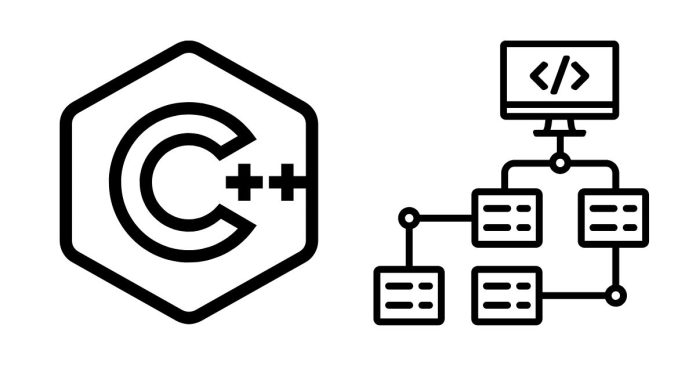A C program consists of various parts that work together to form a complete program. The structure defines the arrangement of these parts. Here’s a general breakdown of the structure of a C program:
1. Preprocessor Directives
Preprocessor directives are instructions for the compiler to process before the actual compilation of the code begins. These are often used to include header files or define macros.
#include: Used to include standard or user-defined header files.#include <stdio.h> // Standard input/output header #include <stdlib.h> // Standard library header#define: Used to define constants or macros.#define PI 3.14 // Define PI as 3.14
2. Global Declarations
Global declarations are variables and functions declared outside any function (usually at the top of the program) that can be accessed by all functions.
- Global Variables: Variables declared outside of any function and can be used throughout the program.
int globalVar; // A global variable - Global Functions: Functions defined outside the
main()function.void myFunction() { // Function code }
3. Main Function
Every C program must have a main() function. It serves as the entry point of the program, where execution begins. It contains the logic of the program.
- Return Type: The
main()function typically returns an integer value (int), where0indicates successful execution.int main() { // Program logic return 0; }
4. Local Declarations
Local declarations refer to variables or functions that are declared inside a specific function (like main()). These are only accessible within the function where they are declared.
- Local Variables: Variables declared within a function.
int localVar; // Local variable - Local Functions: Functions declared within the scope of another function (typically not used in standard C but can be seen in some environments).
5. Statements and Expressions
Statements are the individual instructions that a program executes. These include assignments, function calls, control structures, etc. Expressions are combinations of variables, constants, operators, and functions that are evaluated to produce a result.
- Variable Assignment: Assigning a value to a variable.
int x = 5; // Assigns 5 to variable x - Function Calls: Calling a function to execute its code.
printf("Hello, World!\n"); // Calling printf() to print a message - Control Structures: Including
if,else,for,while, etc.if (x > 0) { printf("Positive\n"); }
6. Function Definitions
In C, a function is a block of code that performs a specific task. Function definitions consist of a return type, function name, and parameters (if any). The code block enclosed in curly braces {} contains the body of the function.
- Syntax:
returnType functionName(parameters) { // Code block } - Example:
int add(int a, int b) { return a + b; }
7. Comments
Comments are used to explain the code and make it more readable. They are ignored by the compiler and do not affect the program’s execution.
- Single-line comment:
// This is a single-line comment - Multi-line comment:
/* This is a multi-line comment. It spans multiple lines. */
8. Return Statement
The return statement is used to exit a function and optionally pass a value back to the caller (usually main()).
- In the
main()function:return 0; // Indicates successful execution - In other functions:
return sum; // Return the sum of two numbers
General Structure of a C Program
Here is a template showing how the structure of a C program looks:
#include <stdio.h> // Preprocessor directive to include standard input/output library
// Global variable declaration
int globalVar = 10;
// Function declaration
void myFunction();
// Main function (entry point of the program)
int main() {
// Local variable declaration
int localVar = 5;
// Function call
myFunction();
// Printing to console
printf("Local variable: %d\n", localVar);
return 0; // Exit with success status
}
// Function definition
void myFunction() {
printf("This is a function.\n");
}
Explanation:
- Preprocessor Directive: Includes the necessary header files (
stdio.hfor input/output operations). - Global Variable:
globalVaris accessible throughout the program. - Main Function: The execution starts from here. It contains a local variable
localVarand calls a functionmyFunction(). - Function Definition:
myFunction()is a user-defined function that prints a message. - Return Statement: The
main()function returns0to indicate successful completion of the program.
Conclusion
The structure of a C program consists of several key components like preprocessor directives, global and local declarations, the main() function, and function definitions. Properly organizing these components ensures that your C program is readable, maintainable, and functions as expected.


